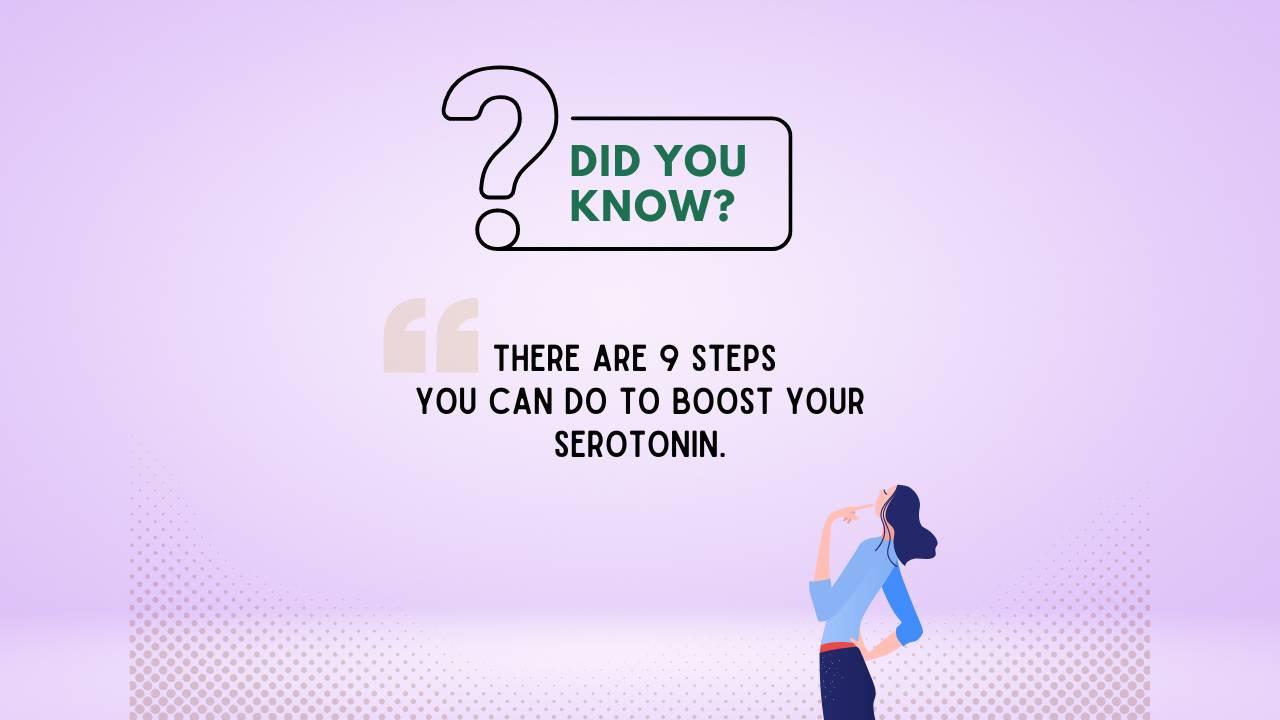9 Steps to Boost Your Serotonin
Mar 15, 2023
Do you feel down most of the time?
If you're like many other people, you probably have a good deal of difficulty sleeping at night. A lack of serotonin - can lead to feelings of depression and anxiety.
Did you know that 95% of our serotonin is produced in our second brain (the gut)?
It is not only produced in our gut but as well in our blood platelets, central nervous system and our brain.
In fact, low levels of serotonin have been linked with every kind of mood disorder from bipolar disorder to social anxiety.
The Feel Good neurotransmitter (serotonin) assists in the feeling of happiness, well-being and satisfaction, it is also involved in regulating our appetite, sleep, mood and sexual behavior and cognitive functions such as memory and learning.
Serotonin, also known as 5-hydroxytryptamine (5-HT), is a neurotransmitter that plays a crucial role in regulating a wide range of physiological and psychological functions in the human body.
One of the most well-known effects of serotonin is its impact on mood. Serotonin helps regulate the release of other neurotransmitters such as dopamine and norepinephrine, which also play a role in mood regulation.
When serotonin levels are low, people tend to crave high-carbohydrate and high-fat foods, which can lead to overeating and weight gain. This is one reason why some antidepressant medications that increase serotonin levels, such as selective serotonin reuptake inhibitors (SSRIs), can lead to weight loss in some people.
Serotonin helps to regulate the sleep-wake cycle, with higher levels of serotonin promoting wakefulness during the day and lower levels promoting sleep at night. This is why SSRIs can sometimes cause sleep disturbances as a side effect.
While serotonin is most commonly associated with its role in the brain, it is also produced in the gastrointestinal tract where it helps regulate intestinal movements and can also influence appetite and mood. This is why certain gastrointestinal disorders such as irritable bowel syndrome (IBS) and inflammatory bowel disease (IBD) are often associated with changes in serotonin levels.
Serotonin is a very important neurotransmitter that plays a crucial role in regulating a wide range of psychological and physiological functions in our body.
Boost your serotonin with these 9 simple steps:
✨ Practice self-care
✨ Spend time in nature & receive sunlight
✨ Practice mindfulness and meditation
✨ Exercise
✨ Eat mood foods and drink mood-boosting infusions
✨ Spend time with loved ones
✨ Practice gratitude
✨ Have a hobby
✨ Keep your microbiome smiling
Get Access to my free masterclass "Rise in Self-Love" and enjoy many more free valuables by joining my group
Stay connected with news and updates!
Join our mailing list to receive the latest news and updates from our team.
Don't worry, your information will not be shared.
We hate SPAM. We will never sell your information, for any reason.

